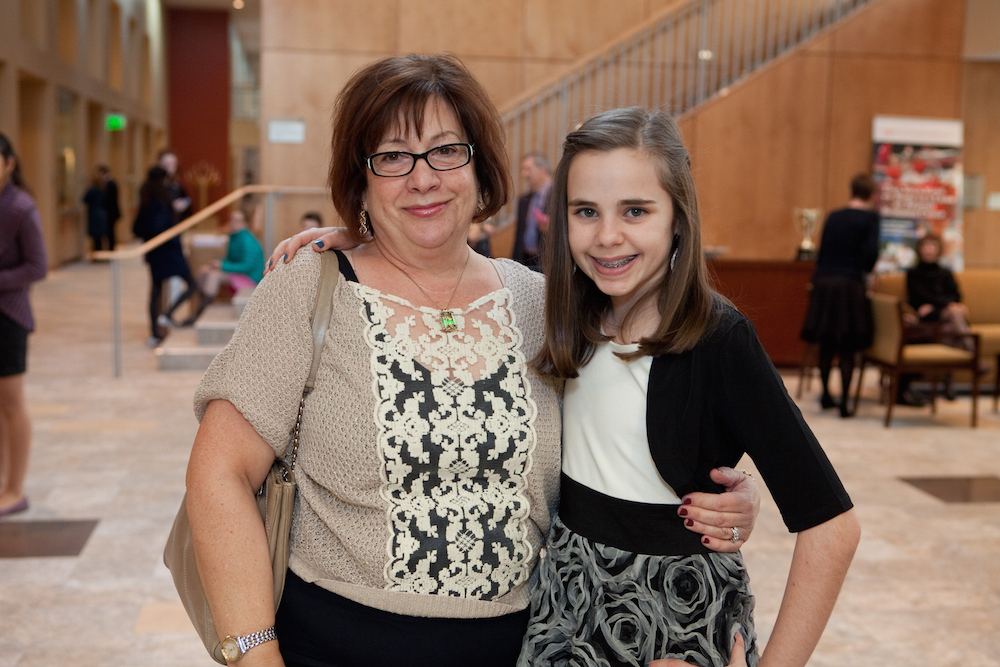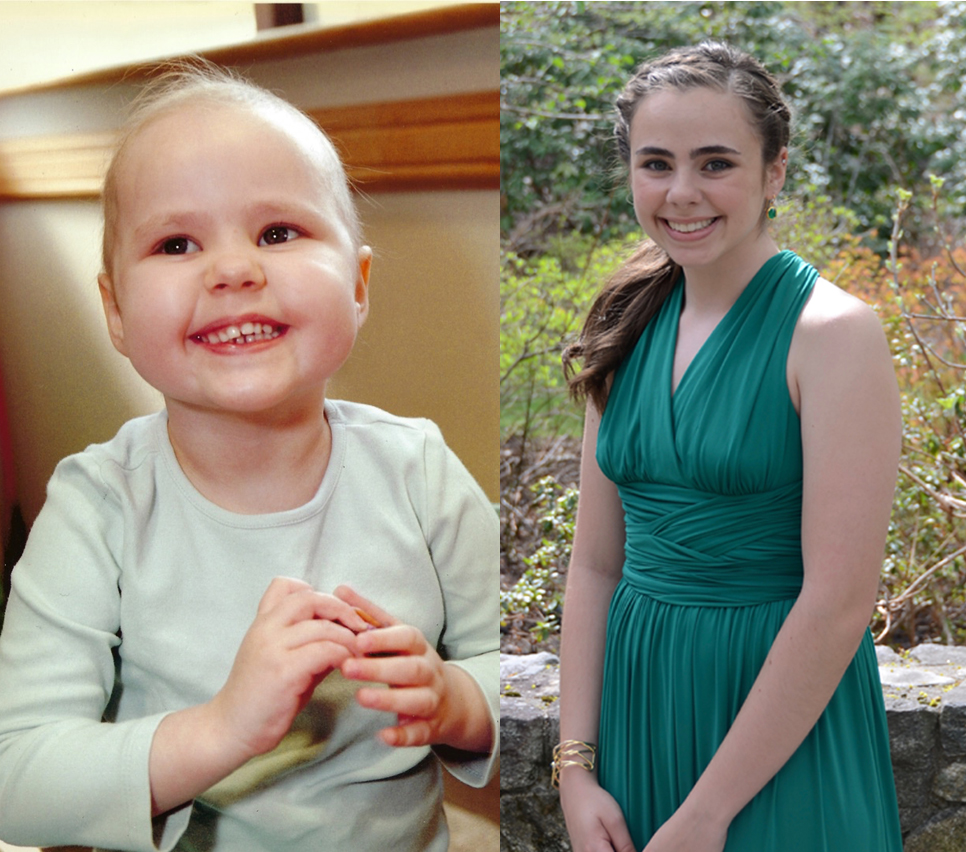
Like many of Dana-Farber’s youngest patients, 3-year-old Hannah Packman brought a favorite plaything to each of her Jimmy Fund Clinic visits. Lulu the doll, however, was unique because of the extra attention she received from pediatric social worker Deborah Berk, LICSW.
When Hannah had a blood draw, Berk arranged for Lulu to have one as well. As Hannah’s hair started falling out from chemotherapy, so did Lulu’s. And, in time, both grew it back.
“Lulu was an invaluable source of comfort to Hannah during her treatment, and she and Deborah spent time together talking about how Lulu felt getting blood drawn, feeling tired, and losing her hair,” says Karen Packman, Hannah’s mother. “It helped Deborah to understand how Hannah was feeling about what was going on in her life during treatment.”
The gestures made an indelible impact on Hannah. Her treatment for acute lymphoblastic leukemia (ALL) ended just after her sixth birthday, in 2004, but the bond she and her family formed with Berk has lasted through more than a decade of emails, annual check-ups, and happier milestones. The doctors and nurses who treated her were wonderful, Hannah says, but Berk was “a combination of a friend and a second mom” during the scariest times in her life.
Learn More:
“We played with a dollhouse in her office, worked on art projects – she was always finding the next thing for us to do,” says Hannah Packman, now 18. “She had a fill-in-the-blank book about cancer patients that we would work on together, which really helped me open up about what I was going through. And if I was getting difficult treatments like a spinal tap in my back, she was there to calm me down.”
Hannah also credits Berk for being “a great source of strength” for her parents and older sister, Julia. Berk often talked to Julia, then in grade school, about how Hannah’s cancer was impacting her life, and Julia says that “I often like to say that I grew up at the Jimmy Fund Clinic during Hannah’s treatment – and a highlight of my time there was going into Deborah’s office to talk and hang out and just be a kid.”
And when it came to parental concerns, Karen Packman says, the social worker was a great sounding board for she and her husband, Jeff. “Deborah was solely focused on ensuring that Hannah and the rest of the family were comfortable with understanding all of the impacts of her diagnosis, both emotional and physical,” says Karen. “As soon as Deborah came into a room, Hannah’s disposition would change. She felt safe with Deborah at her side.”

Berk, who has been on staff at Dana-Farber for 16 years, says that she and other pediatric social workers “consider it an honor” to provide families with a greater sense of stability through diagnosis, active treatment, and beyond.
“This longitudinal relationship is great for the families, and it’s great for us,” says Berk. “Watching families change and grow is a precious thing.”
In Hannah’s case, her growth included a Bat Mitzvah, and Berk was at the Jewish coming-of-age ceremony as a guest of the Packman family. “Looking out and seeing Deborah in the crowd was an incredible feeling,” Hannah says.
Fast-forward six more years, and Hannah is a college freshman who says a big reason she has “wonderful memories” about her time at Dana-Farber despite dealing with the difficulties of being a cancer patient is because of all her caregivers – especially Berk. The two still occasionally exchange emails, and look forward to catching up in person during Hannah’s annual check-ups. Berk has joked with Hannah about taking Lulu away to school, but the young survivor has chosen to keep the doll on her bed back home.
“I would never take a chance on losing her,” she says.
